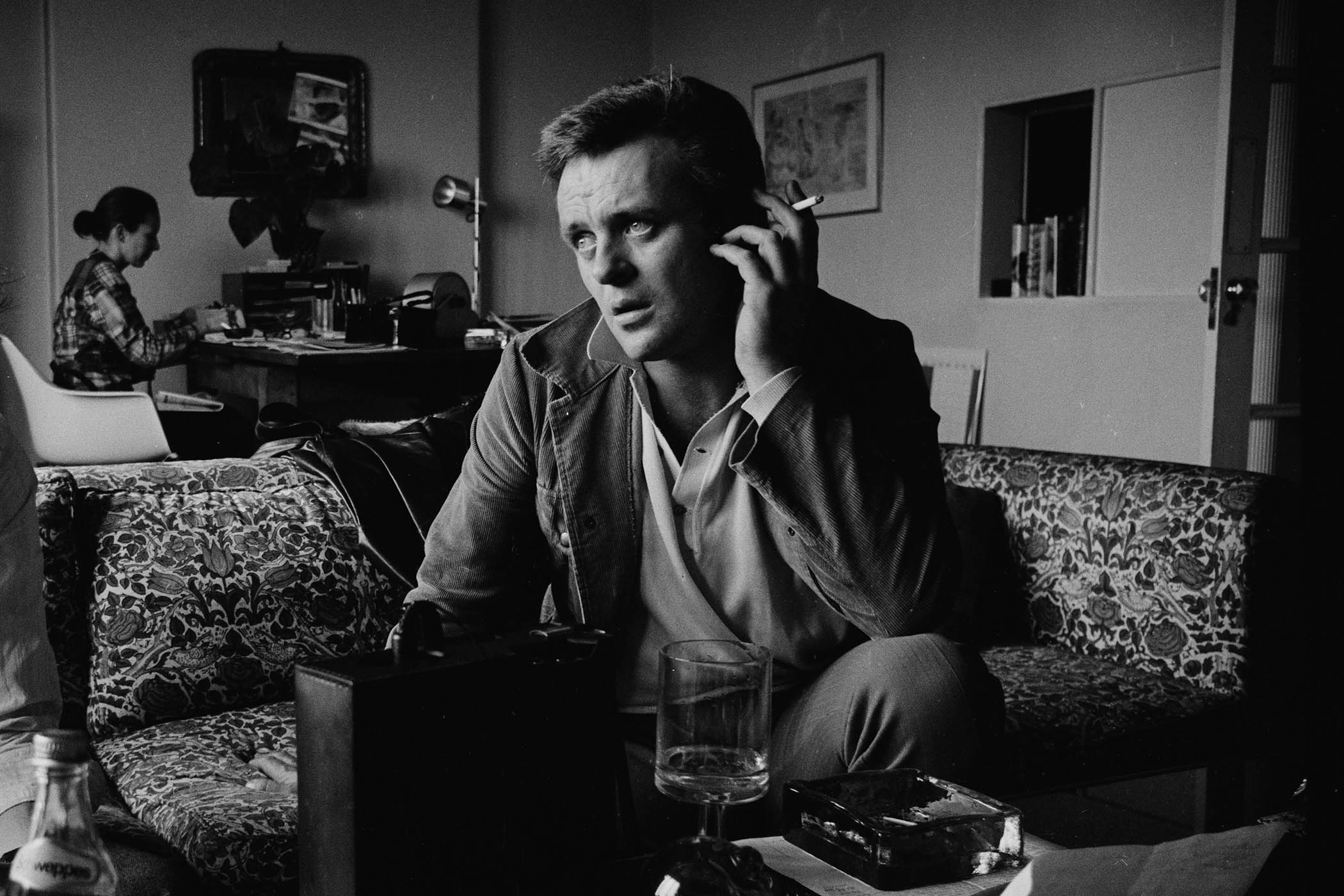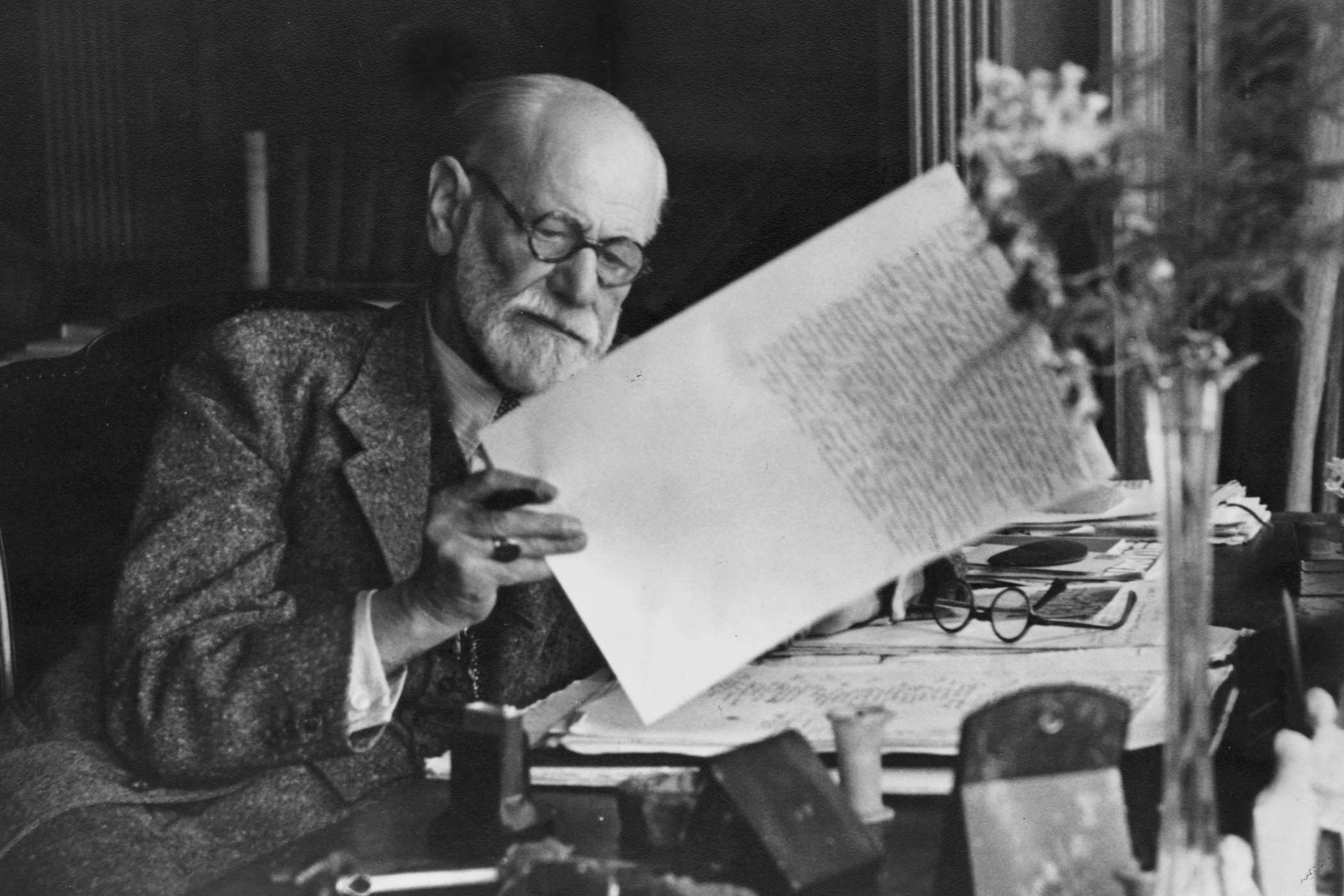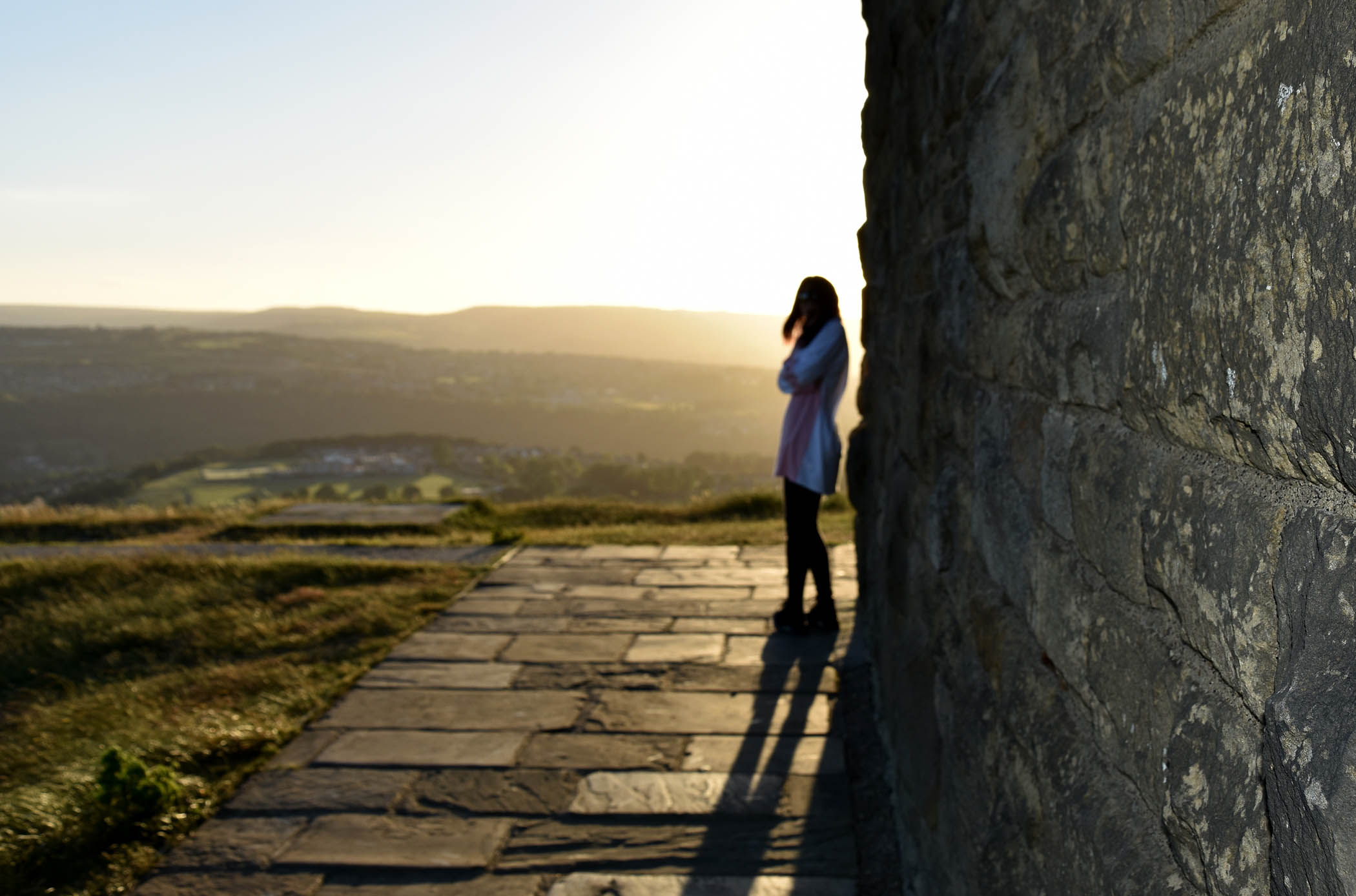When Anthony Hopkins was growing up in Port Talbot, Richard Burton sometimes came to visit his sister Cissy in town. He remembers seeing Burton in his flash car and thinking: “That’s what I want to be.” Hopkins was an unhappy, dreamy, friendless boy, considered “totally inept” at school. The only good moment was when a teacher asked him to read John Masefield’s poem The West Wind aloud and the whole class was spellbound. Then a friend of his father’s took him to the YMCA, where he was afraid he would be made to play snooker, but came across a group rehearsing their Easter play, and the director asked if he’d like to be in it. Yes please, Hopkins said, and was given one line. His parents and grandparents came to see it, and his father wept when he delivered his line. He liked acting, he realised, because “I didn’t have to be me any longer.”
His mother spotted an advertisement for a scholarship to the Cardiff College of Music and Drama and Hopkins was invited to audition, and won. He got “mildly encouraging” reports and, upon leaving in 1957, found work immediately as an assistant stage manager on an Arts Council of Wales tour of Look Back in Anger, but then was called up to the army. He liked the “discipline and precision” of army life, though he was confined to barracks a few times for brawling. In 1960, now back in Civvy Street, he started applying for theatre jobs and found employment at the Library Theatre Company in Manchester and then at the Nottingham Playhouse, but everyone advised him to go to Rada to acquire some technique. So he auditioned as Iago and won a place. His classmates included John Hurt and David Warner, but he didn’t socialise: “I stayed quiet and shut down … liquor was beginning to take over my life.”
Seemingly all the great actors at that time – Peter O’Toole, Richard Harris, Oliver Reed, Richard Burton – were prodigious drinkers and Hopkins rapidly became another. But unlike them, he was never a party animal or hell-raiser; he preferred drinking quietly, alone. So he carried on drinking through all the years when he was building his career in repertory theatre, and then, from 1965, at the National Theatre under Laurence Olivier, at a time when the company included Maggie Smith and Derek Jacobi. There was one worrying occasion when he was playing a messenger in Othello and suddenly started speaking Iago’s lines, but he got away with it. Olivier was paternal – when Hopkins left to film The Lion in Winter (playing Richard the Lionheart), he said: “You must come back to the theatre, my boy.” He promised he would, but quickly found he preferred doing films. “Film was easy. I started to find the theatre tedious.”
It was only when he moved to the US in the early 1970s that other people started commenting on his drinking. He felt sure he wasn’t an alcoholic because he could go for two weeks, even three, without booze, but he was drinking whisky at 9am and starting to have blackouts. One night he woke up in an Arizona hotel, having driven there from LA completely off his head. He realised he could easily have killed someone and finally took himself to AA, where he still sometimes attends meetings, though it is almost 50 years since he last had a drink.
Hopkins writes about his three marriages though not about his affairs. He married his first wife, Petronella Barker, in September l967 and “what followed were the worst two years of my life. They are a Dead Sea Scroll to me now … My depression was boundless; the booze was my pacifier. I brooded. She raged.” They had a daughter, Abigail: “Her nursery was a haven. Unfortunately, there were other rooms in that house, and those were hell.” He came back from filming in Scotland on 25 October l969 and Petronella immediately started mocking him, so he went to Abigail’s bedroom, kissed her goodbye, packed his suitcases and walked out of the house, never to return. He spent the night with his actor friend David Swift, who had been best man at his wedding but now begged him: “Don’t go back. Petronella will kill you or you will kill her or you will kill yourself.” When Hopkins told his mother he’d left Petronella, she said: “Oh, thank God for that.” But it meant he didn’t see Abigail again for many years – and when they did eventually meet, they didn’t get on. He admits that “in one regrettable interview” he once said he didn’t know where she was and didn’t care, though he now says that losing contact with Abigail “is the saddest fact of my life, and my greatest regret”.
One night he woke up in an Arizona hotel, having driven there from LA completely off his head
One night he woke up in an Arizona hotel, having driven there from LA completely off his head
He met Jenni Lynton in 1969, when he was filming at Pinewood and she was a production assistant. “She was everything I was not: stable, quiet, patient,” and they were married for more than 20 years, despite his numerous infidelities. She saw him through all the worst years of his alcoholism and into sobriety. But she didn’t like his “goody two-shoes” AA friends, and she preferred living in London to LA, so they divorced.
In 2000, he met Stella Arroyave, who owned an antique shop in Pacific Palisades, the affluent LA suburb, and found her beautiful and mysterious. She compared him to the TV character Doc Martin and told him she thought he had Asperger’s. She encouraged him to open up and “the more I took Stella’s advice, the happier I became”. They married in 2003 and are still together, with loads of rescue cats. He is still working at 87 and won his second Oscar (the first was for The Silence of the Lambs) four years ago for his performance as a man with dementia in The Father. He mentions in passing that his and Stella’s Pacific Palisades home burned down in the wildfires in January this year, but adds: “So? Everything vanishes in the end.”
This is a much more amiable book than its naff title suggests, and quirky enough not to feel ghost-written. It follows no very clear chronology and has “tributes” instead of acknowledgments in which he thanks all his family and friends, including his dermatologist, Gyrotonic coach and the Mexican woman who takes care of their cats. This is followed by a 30-page appendix containing his favourite poems. It is far from a luvvy memoir – the only advice he gives would-be thespians is to learn your lines thoroughly and be nice to the crew. But the search to understand his strange personality is gripping enough. Like his alcoholic father, he is quick to anger but also quick to weep. When he was younger, there was a sort of seething resentment that could sometimes erupt: he walked out of a production of Macbeth five days before he married Jenni because he thought the director was putting him down. He was always a loner and says “loneliness is something I cherish”.
“Throughout my life,” Hopkins writes, “I’ve felt like a con man, a trickster, and a highly successful failure.” This memoir is a success.
We Did OK, Kid by Anthony Hopkins is published by Simon & Schuster (£25). Order a copy from The Observer Shop for £21.25. Delivery charges may apply
Newsletters
Choose the newsletters you want to receive
View more
For information about how The Observer protects your data, read our Privacy Policy
Editor’s note: our recommendations are chosen independently by our journalists. The Observer may earn a small commission if a reader clicks a link and purchases a recommended product. This revenue helps support Observer journalism
Photography by Don Smith, Radio Times/Getty Images


